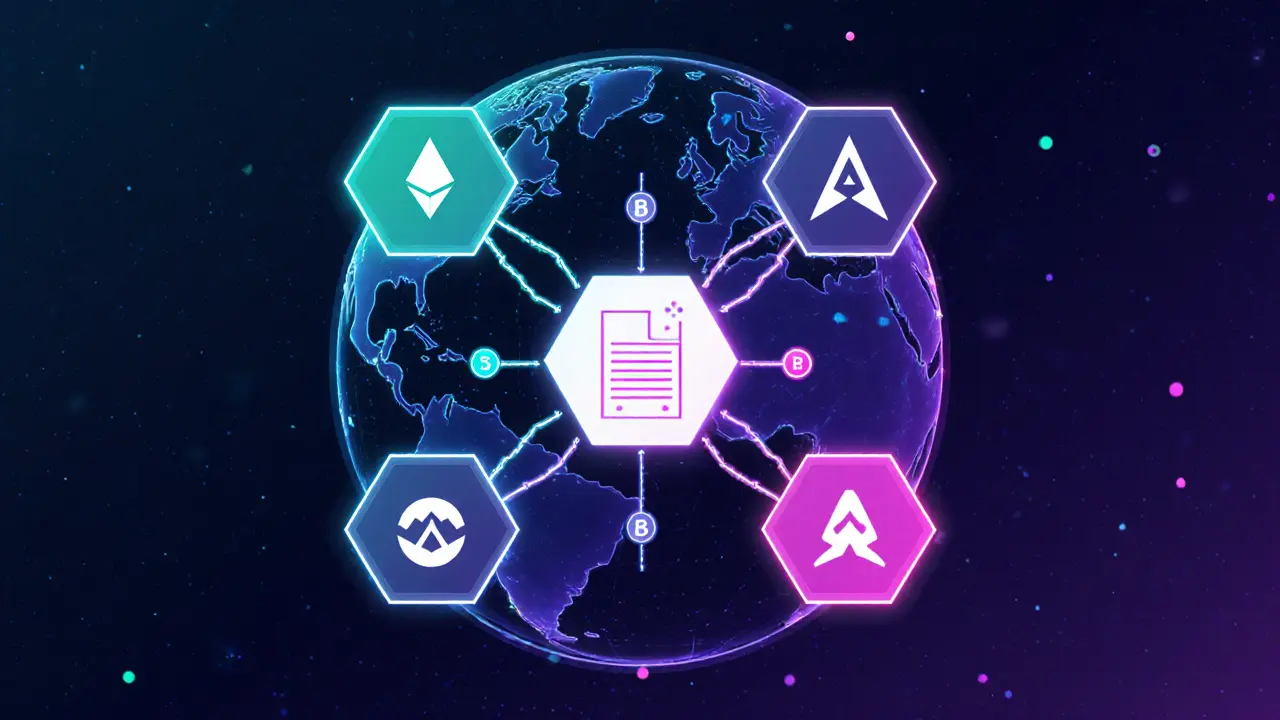Chainlink CCIP: Cross‑Chain Interoperability Made Simple
When working with Chainlink CCIP, a protocol that lets smart contracts send data and commands across different blockchain networks. Also known as Cross‑Chain Interoperability Protocol, it bridges isolated ledgers, making assets and information flow freely without trusting a single bridge operator.
Chainlink is the broader oracle network behind CCIP. It provides reliable off‑chain data to on‑chain applications, enabling everything from price feeds to weather data. Chainlink CCIP builds on this foundation, turning the oracle’s data‑delivery capability into a two‑way messaging layer that works across Ethereum, Solana, Polygon, and dozens of other chains.
Oracles act as the bridge between real‑world events and blockchain logic. In the CCIP context, oracles package messages, encrypt them, and route them through a decentralized network of nodes. This design reduces single‑point‑of‑failure risk and ensures that a contract on one chain can trigger a contract on another without manual intervention.
Smart contracts are the programmable agents that execute predefined rules. With CCIP, a smart contract on Ethereum can invoke a function on a Polygon contract, transfer tokens, or update state on a Cosmos‑based chain—all in a single atomic transaction. This cross‑chain capability expands the functional reach of DeFi protocols, NFT marketplaces, and gaming platforms.
Decentralized Finance (DeFi) benefits heavily from seamless interoperability. Liquidity can move instantly between chains, arbitrage bots can act faster, and users no longer need to juggle multiple wallets. CCIP’s standardized interface means developers can write one piece of code that works everywhere, cutting development time and reducing bugs.
Why CCIP Matters for Developers and Users
The protocol introduces three key advantages. First, it standardizes cross‑chain messaging, so developers don’t have to reinvent bridges for each new network. Second, it leverages decentralization — a network of independent nodes validates and forwards messages, minimizing trust requirements. Third, it offers security guarantees through proven cryptographic proofs and on‑chain verification, which protects assets during transfer.
All these pieces fit together: Oracles supply verified data, smart contracts execute logic, and Chainlink CCIP stitches the whole ecosystem into a unified, multi‑chain experience. Below you’ll find a curated set of articles that dive deeper into each component, from DAO token mechanics to crypto licensing, giving you a full picture of how cross‑chain technology reshapes the blockchain landscape.

Cross-Chain DeFi Applications: How Interoperable Finance Works
Jul 25, 2025, Posted by Ronan Caverly
Explore how cross-chain DeFi apps connect multiple blockchains, the tech behind bridges, benefits, security challenges, and future trends shaping interoperable finance in 2025.
MORESEARCH HERE
Categories
TAGS
- decentralized exchange
- crypto exchange
- crypto exchange review
- crypto coin
- crypto airdrop
- cryptocurrency
- CoinMarketCap airdrop
- cryptocurrency trading
- smart contracts
- tokenomics
- DeFi
- cryptocurrency exchange safety
- crypto airdrop 2025
- cryptocurrency airdrop
- cryptocurrency exchange
- MiCA
- crypto airdrop guide
- blockchain token distribution
- crypto token
- Portugal crypto tax
